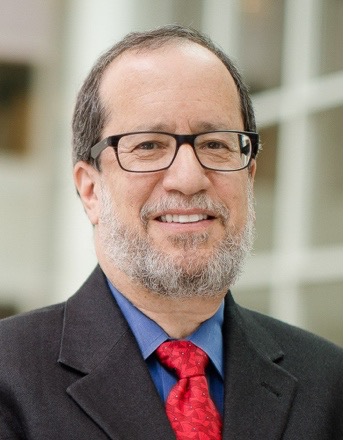The OB Division Mentorship Award recognizes a scholar who has excelled at mentoring others in achieving their career objectives through moral, social, and intellectual support. We define each of these criteria in more detail below:
- Intellectual support: Helps the mentee develop ideas constructively (e.g., by brainstorming, offering a sounding board, suggesting a diverse perspective, providing written feedback) – investing one’s intellectual capital in the service of mentees.
- Social support: Helps the mentee develop a professional network that will allow him/her to be successful (e.g., introducing them to others, writing reference letters, suggesting them as coauthors/reviewers/editors) – investing one’s social capital in the service of mentees.
- Personal support: Genuinely cares about the wellbeing and development of the mentee (e.g., encouragement through difficult times, helps maintain self-efficacy, provides perspective or specific career/work strategies) – investing one’s personal energy in the service of mentees.
Any member of the OB Division is eligible for this award. This award is not meant to recognize research productivity, advocacy activities in the field, or personal longevity in the field but rather to recognize a scholar who has an impactful effect on other scholars through their outstanding mentorship. To be eligible, the person needs a minimum of three mentees who are willing to write a letter of nomination on behalf of their mentor. Based on the letters or recommendation received, a young and upcoming artist, being mentored by a more senior artist, will develop a personalized piece of art representing the award winner as a mentor. The award winner will be announced at the Academy of Management conference. To nominate an individual for the 2024 Mentorship Award, a nomination packet must include:
- A letter of nomination that identifies the candidate, the individual(s) making the nomination, and a short motivation about why this person is being nominated (one page, single spaced);
- As supporting evidence, we ask the three nominators to each write a supporting letter (one page, single spaced) about how this person (mentor) has impacted their development, career and lives. These letters will be used as input for the artist crafting the award. We need a minimum of three, and a maximum of 10, letters per person. Nominations are accepted from all OB Division members.
- If you nominated a candidate in a prior year/years who was not successful, you will need to resubmit the nomination materials this year.
The 2025 winner: Sim Sitkin

Sim B. Sitkin, Michael W. Krzyzewski University Professor of Leadership at Duke University, receives the Mentorship Award for his exceptional career-long commitment to developing organizational behavior scholars through intellectual, social, and moral support.
Professor Sim Sitkin has a rich portfolio of mentoring experience, serving as the dissertation chair for at least 14 doctoral students and serving on over 30 other dissertation committees. Letters from his mentees create a consistent picture of Sim as a generous and thoughtful mentor, not only with his own doctoral students but also with other students, postdocs, colleagues, and more. They speak of how he simultaneously encouraged students’ intellectual development and developed meaningful personal connections with each mentee. He invests extraordinary intellectual capital in developing independent thinkers through deep theory building, meticulous feedback, and long-term collaboration. His influence spans decades and continents, with countless mentees testifying to his integrity, generosity, and unwavering dedication to their growth. His legacy is a global community of scholars shaped by his wisdom, generosity, and unwavering commitment.
His impact extends far beyond individual mentoring relationships. As founding director of multiple centers, including the Fuqua/Coach K Center on Leadership & Ethics and the Behavioral Science and Policy Center, Professor Sitkin has created lasting infrastructure for mentoring future scholars. His co-founding of the Behavioral Science & Policy Association specifically bridges the gap between research and practice, creating mentoring opportunities for scholars to translate their work into policy applications
Past award winners: